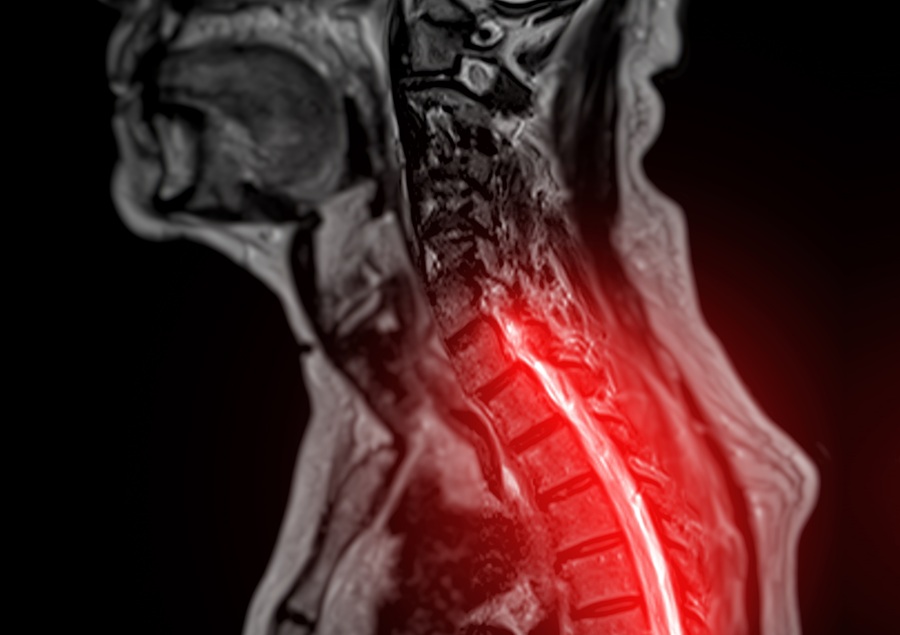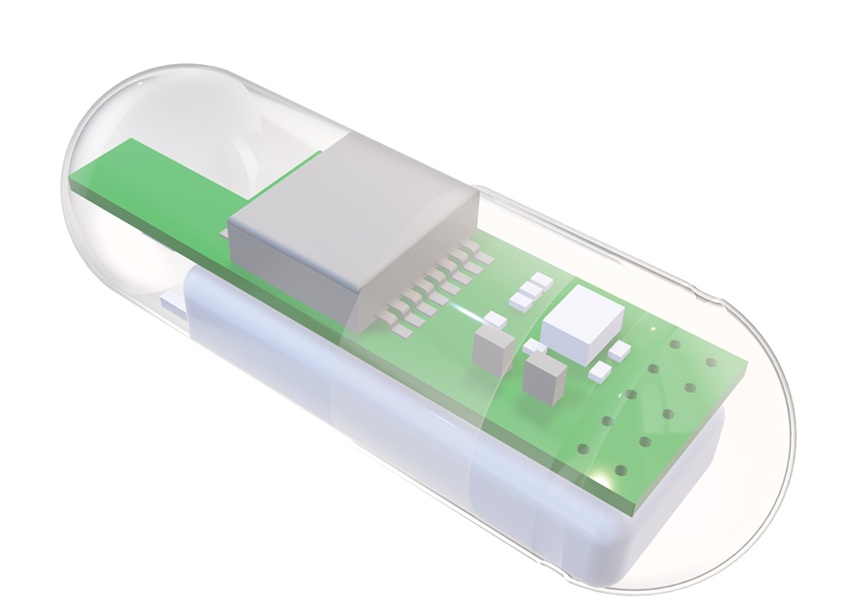Pharmaceutical Firm Sells Dosimetry Division
|
By HospiMedica staff writers Posted on 17 Oct 2003 |
As part of a move to divest its noncore businesses, ICN Pharmaceuticals, Inc. (Costa Mesa, CA, USA) has sold its Worldwide Dosimetry Services division to a new company called Global Dosimetry Solutions, Inc. (Bethesda, MD, USA) for US$58 million in cash.
The dosimetry division supplies analytical monitoring services to detect personal occupational exposure to radiation. A wide range of clients utilize the service, including dentists, veterinarians, chiropractors, podiatrists, hospitals, universities, government institutions, nuclear power plants, and small office practitioners. The service includes the manufacturing and distribution of badges, analysis of badges, and a radiation report that analyzes the exposure level.
Earlier this year, ICN sold several other noncore businesses as part of its divestiture program, including the company's manufacturing and retail pharmacy operations in Russia, its research products and diagnostics division of ICN Biomedicals, and the company's photonics business.
"The sale of our dosimetry division represents yet another significant accomplishment for ICN, and provides the company with a substantial addition to cash reserves. We are nearing the end of a highly successful divestiture program with only our much smaller operations in Hungary and the Czech Republic remaining to be sold,” said Robert W. O'Leary, chairman and CEO of ICN.
Related Links:
ICN
The dosimetry division supplies analytical monitoring services to detect personal occupational exposure to radiation. A wide range of clients utilize the service, including dentists, veterinarians, chiropractors, podiatrists, hospitals, universities, government institutions, nuclear power plants, and small office practitioners. The service includes the manufacturing and distribution of badges, analysis of badges, and a radiation report that analyzes the exposure level.
Earlier this year, ICN sold several other noncore businesses as part of its divestiture program, including the company's manufacturing and retail pharmacy operations in Russia, its research products and diagnostics division of ICN Biomedicals, and the company's photonics business.
"The sale of our dosimetry division represents yet another significant accomplishment for ICN, and provides the company with a substantial addition to cash reserves. We are nearing the end of a highly successful divestiture program with only our much smaller operations in Hungary and the Czech Republic remaining to be sold,” said Robert W. O'Leary, chairman and CEO of ICN.
Related Links:
ICN
Latest Business News
- Medtronic to Acquire Coronary Artery Medtech Company CathWorks
- Medtronic and Mindray Expand Strategic Partnership to Ambulatory Surgery Centers in the U.S.
- FDA Clearance Expands Robotic Options for Minimally Invasive Heart Surgery
- WHX in Dubai (formerly Arab Health) to debut specialised Biotech & Life Sciences Zone as sector growth accelerates globally
- WHX in Dubai (formerly Arab Health) to bring together key UAE government entities during the groundbreaking 2026 edition
- Interoperability Push Fuels Surge in Healthcare IT Market
- Philips and Masimo Partner to Advance Patient Monitoring Measurement Technologies
- B. Braun Acquires Digital Microsurgery Company True Digital Surgery
- CMEF 2025 to Promote Holistic and High-Quality Development of Medical and Health Industry
- Bayer and Broad Institute Extend Research Collaboration to Develop New Cardiovascular Therapies
- Medtronic Partners with Corsano to Expand Acute Care & Monitoring Portfolio in Europe
- Expanded Collaboration to Transform OR Technology Through AI and Automation
- Becton Dickinson to Spin Out Biosciences and Diagnostic Solutions Business
- Boston Scientific Acquires Medical Device Company SoniVie
- 2026 World Hospital Congress to be Held in Seoul
- Teleflex to Acquire BIOTRONIK’s Vascular Intervention Business
Channels
Artificial Intelligence
view channelCritical Care
view channel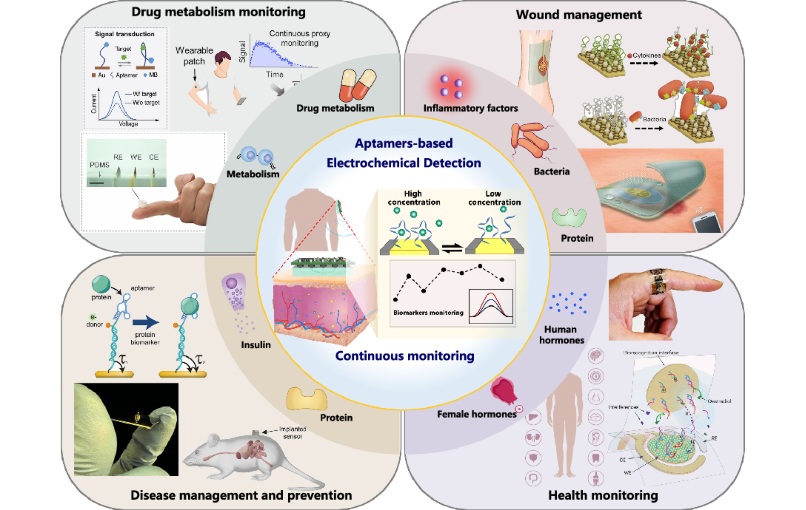
Aptamers Enable Real-Time Biomarker Tracking Without Blood Draws
Continuous monitoring of biomarkers is critical for early disease detection, treatment evaluation, and personalized health management. Yet most clinical tests still rely on invasive, single-point blood... Read more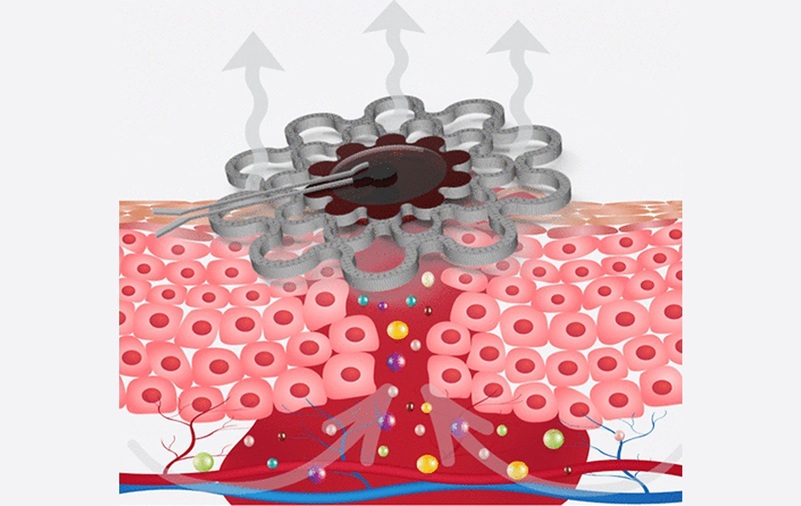
Specialized Dressing with Sensor Monitors pH Levels in Chronic Wounds
Any wound has the potential to become chronic, but the risk is significantly higher in individuals with certain medical conditions. Once a wound becomes chronic, healing slows, complications increase,... Read moreSurgical Techniques
view channel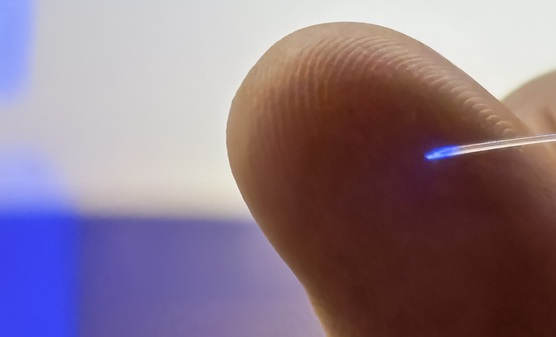
Brain Implant Records Neural Signals and Delivers Precise Medication
Neurological diseases such as epilepsy involve complex interactions across multiple layers of the brain, yet current implants can typically stimulate or record activity from only a single point.... Read moreAI-Based OCT Image Analysis Identifies High-Risk Plaques in Coronary Arteries
Lipid-rich plaques inside coronary arteries are strongly associated with heart attacks and other major cardiac events. While optical coherence tomography (OCT) provides detailed images of vessel structure... Read moreNeural Device Regrows Surrounding Skull After Brain Implantation
Placing electronic implants on the brain typically requires removing a portion of the skull, creating challenges for long-term access and safe closure. Current methods often involve temporarily replacing the skull or securing metal plates, which can lead to complications such as skin erosion and additional surgeries.... Read morePatient Care
view channel
Revolutionary Automatic IV-Line Flushing Device to Enhance Infusion Care
More than 80% of in-hospital patients receive intravenous (IV) therapy. Every dose of IV medicine delivered in a small volume (<250 mL) infusion bag should be followed by subsequent flushing to ensure... Read more
VR Training Tool Combats Contamination of Portable Medical Equipment
Healthcare-associated infections (HAIs) impact one in every 31 patients, cause nearly 100,000 deaths each year, and cost USD 28.4 billion in direct medical expenses. Notably, up to 75% of these infections... Read more
Portable Biosensor Platform to Reduce Hospital-Acquired Infections
Approximately 4 million patients in the European Union acquire healthcare-associated infections (HAIs) or nosocomial infections each year, with around 37,000 deaths directly resulting from these infections,... Read moreFirst-Of-Its-Kind Portable Germicidal Light Technology Disinfects High-Touch Clinical Surfaces in Seconds
Reducing healthcare-acquired infections (HAIs) remains a pressing issue within global healthcare systems. In the United States alone, 1.7 million patients contract HAIs annually, leading to approximately... Read moreHealth IT
view channel
EMR-Based Tool Predicts Graft Failure After Kidney Transplant
Kidney transplantation offers patients with end-stage kidney disease longer survival and better quality of life than dialysis, yet graft failure remains a major challenge. Although a successful transplant... Read more













